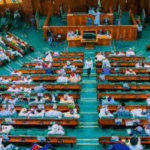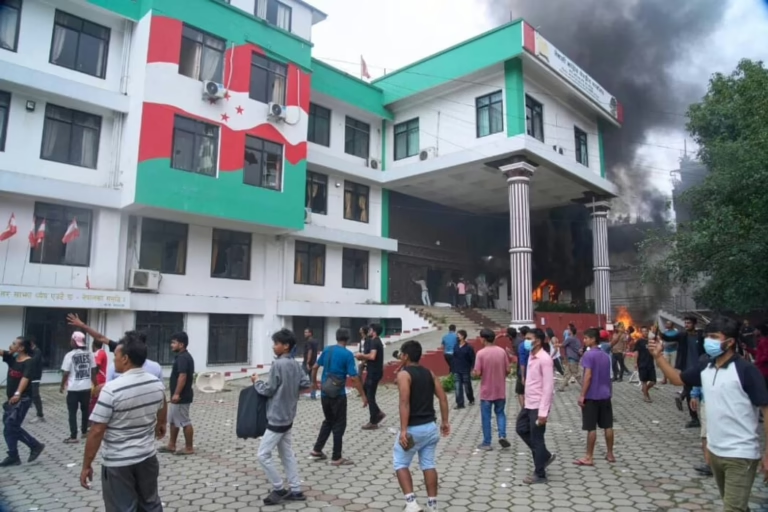On Tuesday, Nepal’s Prime Minister Khadga Prasad Oli stepped down amid escalating protests triggered by a brief government-imposed social media blackout. What began as opposition to the ban quickly evolved into a widespread outcry against corruption and the entrenched political elite.
Despite Oli’s resignation, unrest persisted as thousands of demonstrators took to the streets, obstructing traffic, setting fire to government offices, and assaulting political figures. Even Army helicopters evacuating ministers came under attack.
The turmoil was sparked when authorities blocked access to platforms such as Facebook, X (formerly Twitter), and YouTube, citing non-compliance with registration requirements.
Young activists spearheaded the protests, which rapidly expanded to encompass broader demands for transparency and justice, driven by deep-seated grievances over systemic corruption, social inequality, and soaring youth unemployment.
On Monday, police opened fire on protesters in Kathmandu, resulting in 19 fatalities and injuring hundreds more.
Medical professionals reported that many victims suffered gunshot wounds to critical areas including the head and chest.
Although the government lifted the social media restrictions on Tuesday, public outrage over the deaths only intensified calls for Oli’s removal.
President Ram Chandra Poudel accepted the resignation and appointed Oli to lead a caretaker administration until a new leader is selected.
In response, the president urged all parties to engage in constructive dialogue, while the military called for calm and peaceful resolution.
Protesters also targeted residences of senior officials, including those of Oli, the president, and former Prime Minister Sher Bahadur Deuba. Deuba’s party headquarters was vandalized as well.
Footage circulated showing Deuba and his wife, Foreign Minister Arzu Rana Deuba, injured after being attacked by demonstrators.
“We demand justice,” declared protester Narayan Acharya outside the parliament building. “Our young people are being killed. K.P. Oli must be removed.”
These demonstrations, often referred to as the “Gen Z protests,” are fueled by resentment toward the so-called “Nepo Kids”-offspring of politicians who flaunt affluent lifestyles while the average youth faces a staggering 20% unemployment rate. The government estimates that over 2,000 young Nepalis leave the country daily in search of work abroad.
Human rights organizations have condemned the violent crackdown, accusing law enforcement of using live ammunition against civilians.
Both Amnesty International and the United Nations have demanded a thorough and transparent investigation into the incidents.
Before resigning, Oli promised compensation for the families of the deceased and free medical treatment for those injured.
The protests have also reignited controversy surrounding a proposed social media regulation bill that would require platforms to establish local offices and adhere to stringent controls-measures critics argue are designed to suppress free expression.
While platforms like TikTok and Viber have complied with registration demands, major global companies such as Meta, Google, and X have yet to issue public statements on the matter.

















